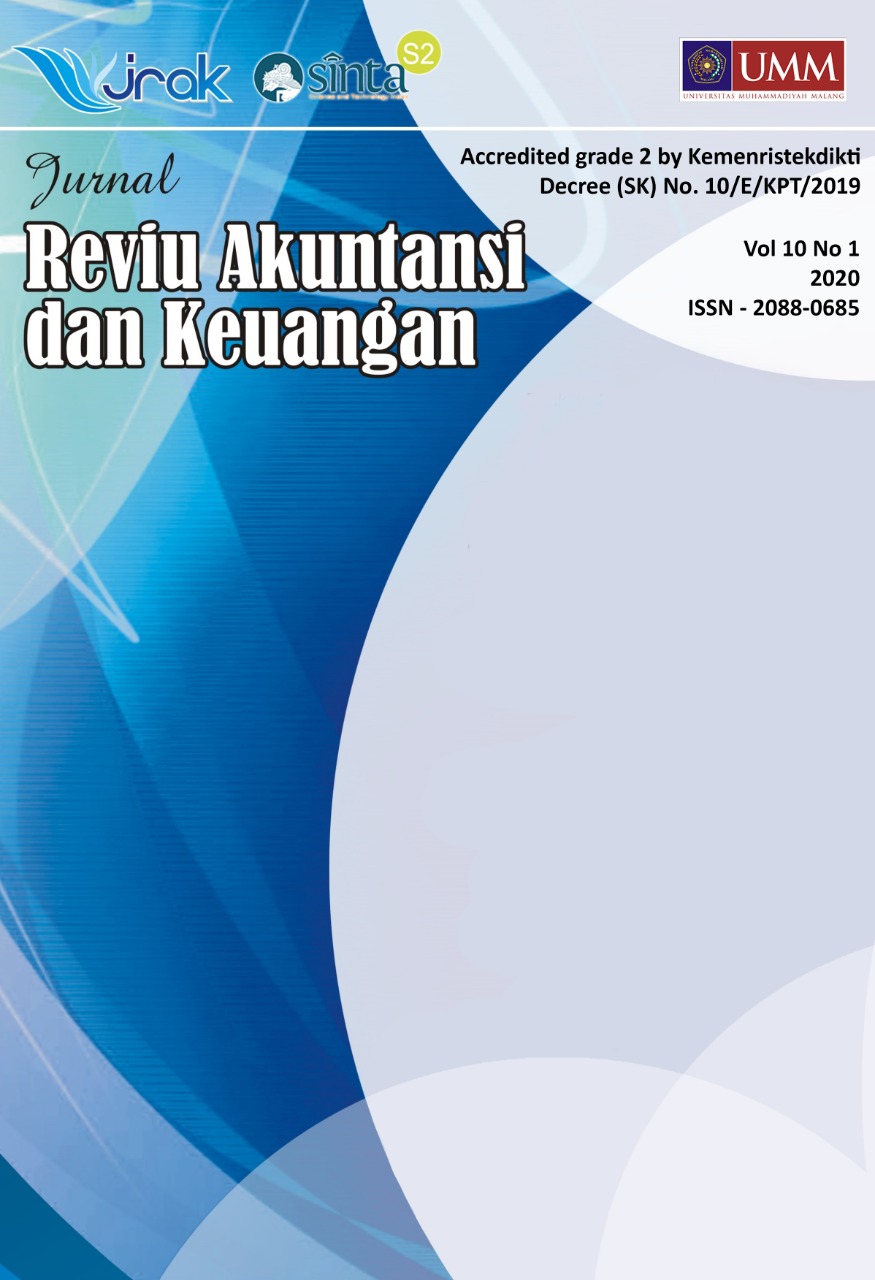THE MODERATING ROLE OF INTELLECTUAL CAPITAL ON THE RELATIONSHIP BETWEEN NON PROFIT SHARING FINANCING, PROFIT SHARING FINANCING AND CREDIT RISK TO FINANCIAL PERFORMANCE OF ISLAMIC BANK
DOI:
https://doi.org/10.22219/jrak.v10i1.10628Keywords:
Financing, credit risk, intellectual capitalAbstract
The purpose of this study is to provide empirical evidence of the effect of non profit sharing finance, profit sharing finance and credit risk on financial performance with the integration of intellectual capital as a moderating variable. The population is all Islamic banking registered in OJK for the period 2015-2018 with a total of 192 observations. These are analyzed using hierarchical regression techniques, multiple linear regression tests and moderated regression analysis (MRA) tests, with e-views 9 software. The results show that non profit sharing financing, profit sharing financing and intellectual capital have a positive and significant effect to financial performance on Islamic banking. While credit risk has a significant negative effect to financial performance of Islamic banking. Furthermore showed that intellectual capital significantly moderates the relationship of non profit sharing finance and profit sharing finance to financial performance Islamic banks. However intellectual capital can’t be moderates the relationship of credit risk and financial performance.
Downloads
Downloads
Published
Issue
Section
License

Jurnal Reviu Akuntansi dan Keuangan is licensed under a Creative Commons Attribution-NonCommercial-ShareAlike 4.0 International License.
Authors who publish with this journal agree to the following terms:
- Authors retain copyright and grant the journal right of first publication with the work simultaneously licensed under a Creative Commons Attribution-NonCommercial-ShareAlike 4.0 International License that allows others to share the work with an acknowledgement of the work's authorship and initial publication in this journal.
- Authors are able to enter into separate, additional contractual arrangements for the non-exclusive distribution of the journal's published version of the work (e.g., post it to an institutional repository or publish it in a book), with an acknowledgement of its initial publication in this journal.
- Authors are permitted and encouraged to post their work online (e.g., in institutional repositories or on their website) prior to and during the submission process, as it can lead to productive exchanges, as well as earlier and greater citation of published work (See The Effect of Open Access).










